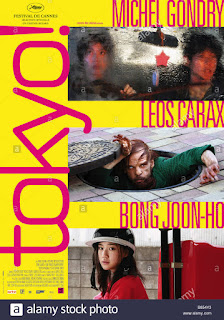American Dharma **** / *****
Directed by: Errol
Morris.
 Errol
Morris’ American Dharma is essentially a feature length interview with Steve
Bannon – the former head of Breitbart, who became a senior Trump adviser, before
getting himself fired. Bannon stands for everything that the left hates about
Donald Trump – he is racist and xenophobic, he tosses out fiery rhetoric, and
stories that have little to no basis in reality. He claims to be on the side of
the little men – while being fabulously wealthy himself, having attended all
the Universities they know hold in contempt – and when they achieve power, they
focus on getting a tax break for the wealthy, that will do little to nothing to
help all those little men. He is, in essence, all of the things people hate
about Trump personified in one hateful package. And Morris lets him talk and
talk and talk for 90 minutes in American Dharma – and apparently, Bannon is
quite happy with how the film came out. It was his idea after all – having been
a fan of Morris’ The Fog of War – he wanted the same basic treatment.
Errol
Morris’ American Dharma is essentially a feature length interview with Steve
Bannon – the former head of Breitbart, who became a senior Trump adviser, before
getting himself fired. Bannon stands for everything that the left hates about
Donald Trump – he is racist and xenophobic, he tosses out fiery rhetoric, and
stories that have little to no basis in reality. He claims to be on the side of
the little men – while being fabulously wealthy himself, having attended all
the Universities they know hold in contempt – and when they achieve power, they
focus on getting a tax break for the wealthy, that will do little to nothing to
help all those little men. He is, in essence, all of the things people hate
about Trump personified in one hateful package. And Morris lets him talk and
talk and talk for 90 minutes in American Dharma – and apparently, Bannon is
quite happy with how the film came out. It was his idea after all – having been
a fan of Morris’ The Fog of War – he wanted the same basic treatment.
Many see
the fact that it lets Bannon talk – and his apparent happiness with the result
– as proof that Morris was played – that he “lost” the interview with Bannon, and
further proof that the left shouldn’t try to debate people like Bannon – but
essentially to stop giving them a platform to spew their hatred at all. It
that’s the way you feel, then nothing I can say will make you change your mind
– make you see this movie, or not hate it if you do. But I don’t think Morris
“lost” this interview with Bannon – mainly because I don’t think Morris ever
really tries to “win” these interviews. Morris’ strategy – with everyone from
the Holocaust denying inventor or death penalty devices in Mr. Death, to Robert
McNamara in The Fog of War, to Donald Rumsfeld in The Unknown Known, to the
soldiers at Guantanamo in Standard Operating to Procedure and everyone else he
has ever interviewed – is to basically give them enough rope to hang themselves
with, and to undermine them as they do so with the visuals Morris so famously
cuts those interviews with.
The
framing device in American Dharma is basically Bannon talking about the movie
he loves – from 12 O’clock High to the cinema of John Wayne – and Morris lets
Bannon talk about these films, while at the same time showing us clips of those
films. Sometimes, they underline what Bannon is saying – but others it
undermines them (Bannon talking about The Searchers, seemingly unaware that Wayne’s
character there is a racist for example). Later in the film, when Bannon tries
to defend himself and Trump against allegations of racism, Morris simply shows
us a ton of headlines that prove the opposite, a tactic he uses again and
again, no matter what the topic is. Morris makes it clear where he stands on
everything – while he never does the verbal evisceration that audiences on the
left seem to want him to do on Bannon.
This is
all part of Morris’ methodology, and while you can critique it, I think it’s an
interesting and valuable one. How many times have we seen headlines about how
John Olivier, Samantha Bee or other (mostly great) late comedians have “eviscerated”
or “destroyed” Trump or one of his cronies? Have any of them actually stopped
Trump? They are, in essence, preaching to the choir when they do those shows.











